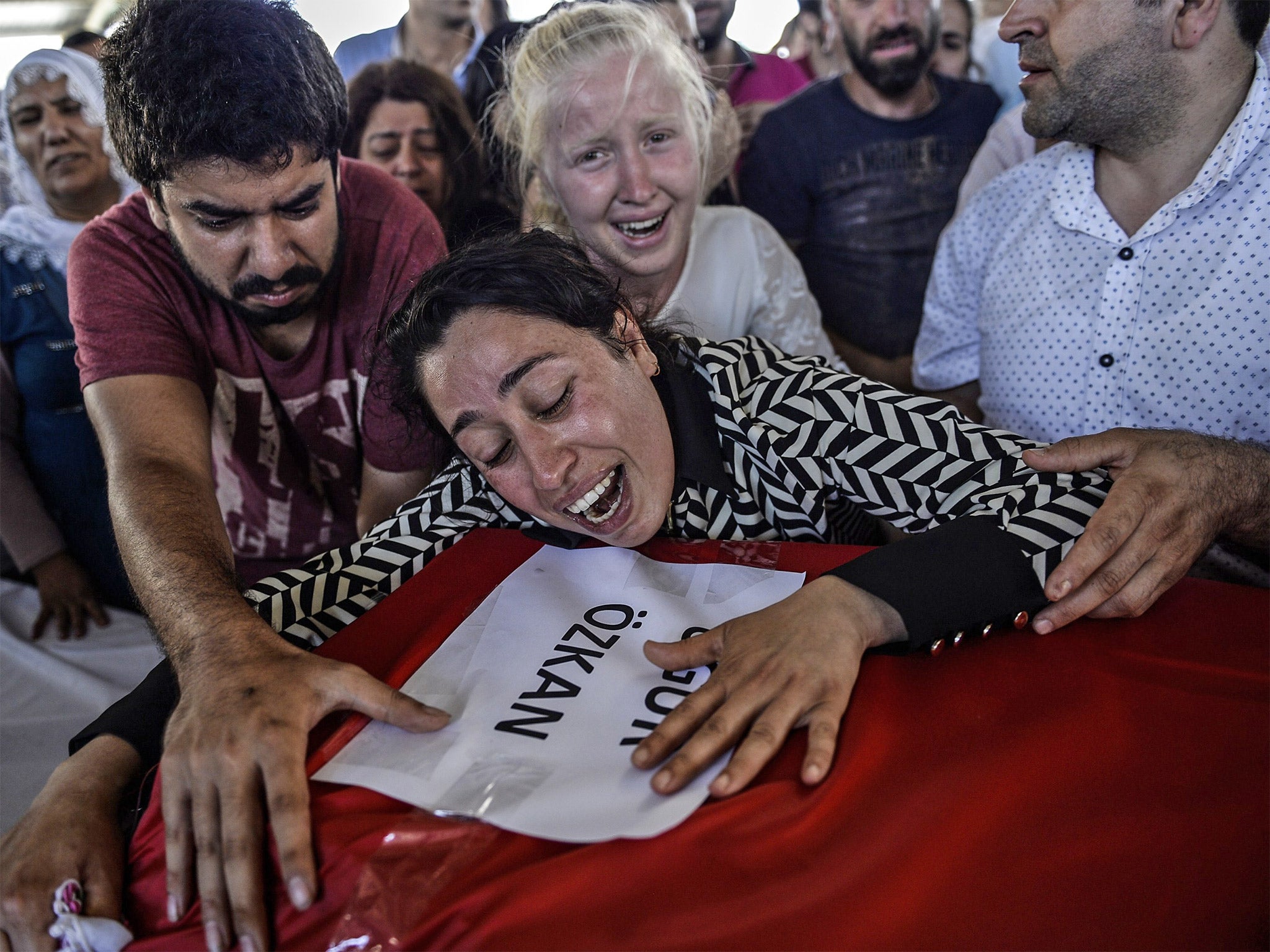Suruc bombing: Turkish police investigate suspect's links to Isis following suicide attack
Prime Minister, Ahmet Davutoglu, said there was a 'high probability' that the militant group was to blame for the atrocity

Your support helps us to tell the story
From reproductive rights to climate change to Big Tech, The Independent is on the ground when the story is developing. Whether it's investigating the financials of Elon Musk's pro-Trump PAC or producing our latest documentary, 'The A Word', which shines a light on the American women fighting for reproductive rights, we know how important it is to parse out the facts from the messaging.
At such a critical moment in US history, we need reporters on the ground. Your donation allows us to keep sending journalists to speak to both sides of the story.
The Independent is trusted by Americans across the entire political spectrum. And unlike many other quality news outlets, we choose not to lock Americans out of our reporting and analysis with paywalls. We believe quality journalism should be available to everyone, paid for by those who can afford it.
Your support makes all the difference.A suspect has been identified in the suicide bombing in the Turkish town of Suruc that killed at least 32 people, according to the country’s Prime Minister, Ahmet Davutoglu. Mr Davutoglu said that the suspect’s “links domestically and internationally are being investigated”. He added that there was a “high probability” that Isis was to blame for the attack, although responsibility has not yet been claimed by the group.
The blast on Monday tore through a group of university-aged students from an activist organisation as they gathered in the border town of Suruc, before a planned trip to help rebuild the nearby Syrian Kurdish town of Kobani. The Syrian border town has come under repeated assault from Isis and has been a rallying point for Turkey’s Kurdish minority, who have been enraged by what they see as the refusal of President Tayyip Erdogan and the ruling AK Party to intervene in a conflict played out within clear sight of Turkish military positions.
Thousands of foreign fighters have crossed through Turkey to join Isis over the past few years. The United States and other Western allies have also urged Turkey, a Nato member which shares a 560-mile border with Syria, to do more to tighten security on the frontier. Mr Davutoglu said that cabinet ministers would assess potential additional security measures at the border at a meeting on Wednesday. Mr Davutoglu rejected accusations that Turkey had in the past tacitly supported Isis militants operating from Syria, and so had unwittingly opened the door to the suicide bombing in Suruc.
“Turkey and AK Party governments have never had any direct or indirect links with any terrorist group, and have never showed tolerance to any terrorist group,” Mr Davutoglu said in Sanliurfa province, where Suruc is located. On Monday Mr Davutoglu described Isis as “not just a threat to Syria but to Turkey as well”.
One of the activists caught up in Monday’s blast – Akdag, 36, who travelled to Suruc to perform a play for refugees from Kobani and escaped the bombing unhurt – said: “We wanted to bring art, aid, toys. We weren’t going to wage war.” Describing the activists, he said: “They were living in more comfortable conditions in Turkey but had consciences and wanted to help the people of Kobani.”
Funerals have been held for some of the victims, with crowds of mourners weeping and chanting beside flag-draped coffins.
Pro-government media accused the Peoples’ Democratic Party (HDP), which draws most of its support from Kurds, of seeking to exploit the Suruc attack by urging Kurds to take up arms, an accusation its leader Selahattin Demirtas denied. He said it was “shameful” that his call to tighten security at HDP buildings after the “inhumane and barbarous massacre” had been portrayed as a “call to arms”, adding: “We will cultivate brotherhood and live in peace in this country.”
Reuters
Join our commenting forum
Join thought-provoking conversations, follow other Independent readers and see their replies
Comments